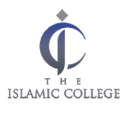HSC204 – Islamic Philosophy
Course Overview
This module aims to introduce the theological implications of modern scientific theories in relation to traditional arguments for God’s existence and the strategies theists have adopted in responding to them. As such, students exploring and engaged with current debates about science and the existence of God. Moreover, it will review fundamental doctrines of Islamic theology as developed during the centuries under the allencompassing term kalam.
Module Info
- Syllabus
- Outcomes
- Strategy
- Material
sYLLABUS
- Over the course of this module, students will see the importance of metaphysics as a cornerstone of the Islamic sciences, and how our answers metaphysical questions ultimately impact discussions in other fields, such as theology, ethics, and mysticism. This module will also tie basic concepts and current issues to classical debates in the history of Islamic philosophy.
Topics covered include:
- Existence and quiddity.
- Modalities of existence.
- Existence in-the-world versus existence in-the-mind.
- Essence and accident.
- Universals and particulars.
- Aristotelian categories.
- Potentiality and actuality.
- Unity and multiplicity.
- Philosophical theology.
Learning Outcomes
Knowledge
Upon completion of this module, a successful student will be able to:
- Evaluate the basic ideas and terms invoked in contemporary Islamic metaphysics. (A4, A7)
- Debate the main points of controversy and debates within contemporary Islamic metaphysics. (A1, B2)
- Describe judgements about competing views in metaphysical debates.(A4, B1)
Skills
This module will require a successful student to:
- Discuss ideas at different levels of abstraction, to develop logical and well-thought-out arguments, and to critically assess the views of others. (B4, B5, C2, C4, C5, C7, D1-D4)
Learning, Teaching and Assessment Strategy
on a question around topics covered within class provides students the basis formative assessment, whereby students will be expected to present the case for or against a particular position and the quality of their argument be judged by peers. The module leader will regularly give feedback to student regarding the progress of their coursework, a draft copy of the completed coursework need be handed in to the module leader before the 10th learning week as part of the formative learning process. Additionally, revision sessions are arranged that will cover topics in preparation for exams, providing constructive formative feedback to students.
Summative, graded assessment is by coursework and written examination. The coursework will require students to write an essay of 3,000 words that demonstrates a critical understanding of one of the main topics covered in class (Outcome 4). A 2-hour written examination will take place at the end of the semester. (Outcomes 1, 2, 3).
Assessment weighting
Coursework: 40%
Written examination: 60%
Learning Material
Core readings
- Tabataba’i, S. M. H. (2003). The Elements of Islamic Metaphysics. Qara’i trans., London: ICAS Press.
- Misbah Yazdi, M.T. (1999). Philosophical Instructions: An Introduction to Contempoary Islamic Philosophy. Binghamton: Global Publications.
- Ubodiyat, A. (2000). An Introduction to Islamic Philosophy. F. Asadi & M. Dasht Bozorgi trans., Qum: The International Organisation of Seminaries and Islamic Schools.


